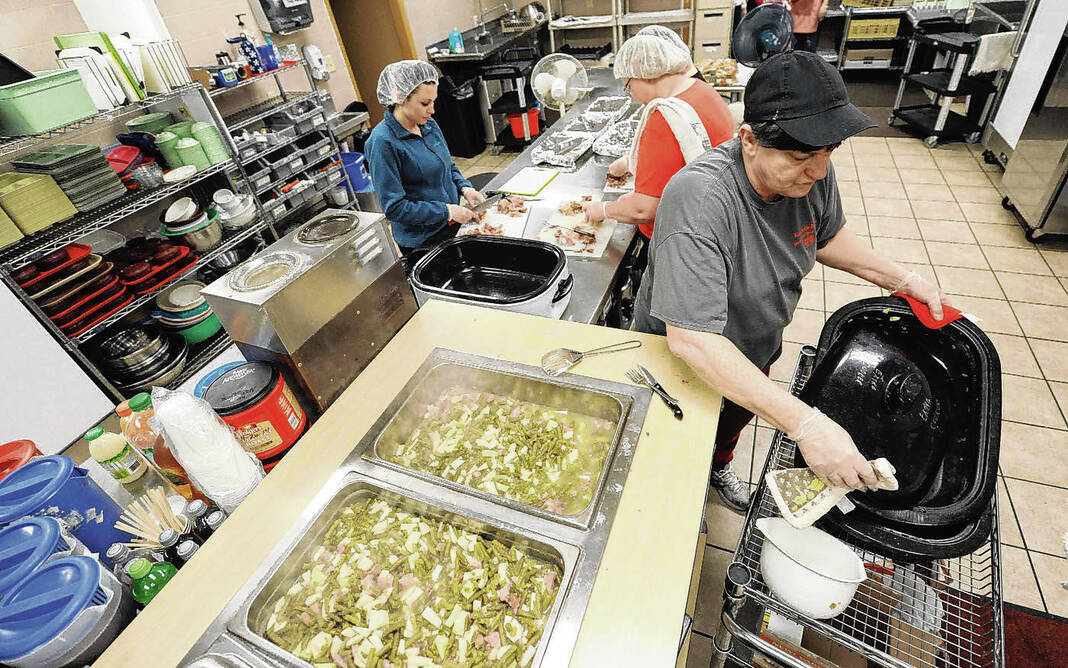GREENFIELD – Officials plan to allocate over $5.2 million the city received in federal COVID-19 relief toward replacing revenue the municipality lost during the pandemic, infrastructure and helping nonprofits.
The funds come from the American Rescue Plan Act that President Joe Biden signed in 2021. Greenfield created a committee to make recommendations on how to use the funds, which City Council approved upon introduction earlier this month. The committee is made up of city officials, like Mayor Chuck Fewell, City Council President Dan Riley and Clerk-treasurer Lori Elmore; as well as community members like Jennifer Hudson, who spoke on those recommendations at last week’s city council meeting.
One source of the funding consists of $2 million to make up for revenue loss and additional expenses incurred during the pandemic, like user fees for park programs that weren’t collected as well as overtime pay for public safety employees and salaries paid to workers who had to stay home after coming into contact with COVID-19.
“This will help replenish the funds that the city had to spend for salaries and supplies during COVID,” Hudson said.
Elmore said there’s no way for the city to regain revenue lost amid the pandemic without something like the American Rescue Plan funds. She recalled situations early on in the pandemic in which the fire department, for instance, had a staff member who tested positive for COVID-19, requiring anyone who worked close to them to have to go home for two weeks. Firefighters from other shifts covered those absences in addition to working their scheduled shifts, while close contacts at home also continued receiving their pay.
“We didn’t miss a beat,” Elmore told the Daily Reporter. “We didn’t close a single day, no departments were furloughed, no employees were laid off.”
Another $2 million of the city’s American Rescue Plan funding is intended for matches to the state’s Community Crossings program for road improvements, which would be split into $500,000 increments over the next four years. The city hasn’t been able to participate in the program the past two years.
“That’s money that we have the ability to double as long as we have the match to do so,” Elmore said.
Community Crossings matches amounts to cities Greenfield’s size up to $1 million, meaning the city could get up to $4 million in road funding in the coming years. If the city can come up with its own $500,000 each year on top of the federal funds, that total could jump to $8 million.
Greenfield’s plan also calls for $475,000 toward park infrastructure, specifically new bathroom facilities needed at Riley Park and Brandywine Park. Elmore noted how the parks system is part of the city’s maximum tax levy, leaving it without a large cash influx and requiring it to often rely on grants.
“The parks were things that people were able to get to when COVID was restricting them from being able to be out and about,” she said. “Having those facilities being modernized would be something that would be beneficial to the community as a whole, also because they’re utilized by so many people as well.”
Another $375,000 would go to sidewalks and trails.
The plan would give $300,000 to nonprofit organizations the city traditionally distributes funds to as well, specifically $105,000 to the Kenneth Butler Memorial Soup Kitchen for remodeling its building and storage, $70,000 to Love INC for building repairs, $75,000 to the Hancock County Food Pantry for modular refrigeration, and $50,000 to Regreening Greenfield to treat, maintain and plant trees within the city.
“The majority of them are suffering because they haven’t been able to have their fundraisers, the volunteerism is down,” Elmore said of nonprofits in the wake of the pandemic.
She added the committee chose organizations the city already helps, as heavier reporting would be required by the American Rescue Plan if it were opened up to other nonprofits.
That leaves nearly $64,000 left over from Greenfield’s total relief funds, which could be used for contracting a grant administrator to ensure the city is in compliance with all of the federal guidelines and requirements.
“At this point in time we don’t know that we will need one, but we want to make sure there was funding available if we did,” Elmore said. “And it was really just the surplus that was left over. If that money is not utilized, the committee will have to come back to the council to make further recommendations on how to spend that money.”





